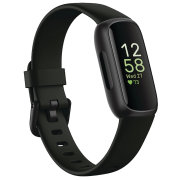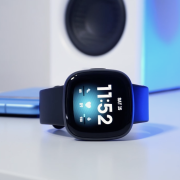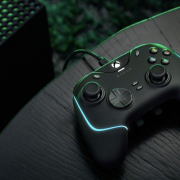
Broadcom Company has announced, at the 2010 CES, that they have successfully ran Android on their most advanced navigation processor, the Broadcom® BCM4760. Broadcom says:
“enabling a new generation of location-aware mobile internet devices (MIDs) and personal navigation devices (PNDs). As PNDs and MIDs evolve to include increasingly sophisticated navigation functionality and location based services, support for open operating systems will make these devices attractive to a broader range of application developers, driving innovation and improved user experiences.”
Broadcom’s success with Android will lead to MIDs and PNDs that will better utilize mapping, navigation, and location applications using bluetooth and Wi-Fi!
[via Broadcom]
![]() Navigon has also made an announcement at this year’s CES in Las Vegas. Navigon is bringing their MobileNavigator to Android users in North America. The MobileNavigator originally launched on Apple’s iPhone, and has now been improved to handle Android. The Navigator uses your phone’s GPS along with it’s preloaded maps to provide accurate navigation during points in which there is no cellular service. Navigon’s MobileNavigator has key features such as:
Navigon has also made an announcement at this year’s CES in Las Vegas. Navigon is bringing their MobileNavigator to Android users in North America. The MobileNavigator originally launched on Apple’s iPhone, and has now been improved to handle Android. The Navigator uses your phone’s GPS along with it’s preloaded maps to provide accurate navigation during points in which there is no cellular service. Navigon’s MobileNavigator has key features such as:
Reality View™ Pro displays photo-realistic 3D views with actual road signs and lane guidance for virtually every highway interchange and exit drivers will encounter. Lane Assistant Pro helps drivers prepare to make an upcoming exit or turn by providing a lane map complete with arrows and actual road geometry. Text-to-speech announces street names in addition to turn-by-turn directions. Instead of only stating “turn right”, the app informs the user to “turn right on to ‘Main Street’, enabling the driver to further concentrate on the road ahead and not become distracted looking for street signs. Speed Assistant with adjustable audio-visual warning. Day & Night Mode for map display. Direct Access allows navigation to contacts saved in the phone’s address book. Route Planning
The Navigon MobileNavigator application for Android devices will be available in the Spring of 2010 and will be available for a one time fee, which has not yet been announced.
[via BusinessWire]
Navigation devices have come such a long way from our original expensive devices to our super sleek Android phones. It will be exciting to see what additions and new features these and advances in Android navigation will bring in addition to the Google Maps Navigation we are familiar with.











My only concern with these navigation apps for Android is why?
We get it free from Google using Google Maps.
The only significant reason would be because they use pre-loaded maps. If I go camping in an area where there’s no signal, I can’t use Google Navigation to come back home.
When Google Navigation becomes available in Canada, I will probably use that as the main GPS, but I will probably have a pre-loaded GPS app as a backup in case I need to use it.
The reason you would download this is if you navigation needs take outside of reliable cell service. Or possibly you only have edge where you live as the maps take much longer to load on just edge.
#1 Terry. Why? Navigon o, just coPilot, are a lot more powerful and complete than Google Navigator.
And also there is more countries than USA, the only place where Google Navigator is available. And not talking of data roaming.
I know the reasons, I just personally don’t need it and was wondering why others wanted it. I had it on my iPhone, it’s a great app.
once you give people a taste of something, they’ll want better and better and will compare to the default.
I think it’s safe to assume that, at some point, Google Navi will have the option to download routes, maps, etc…
Google Nav already caches the route to your phone, so that if you lose signal you can complete your route. But if you deviate from your route, or want to re-route in an area w/out 3G, then you’re SOL. If Google truly wants to dominate in this space, they will have to allow map storage on the phone’s memory card.
You have all misinterpreted this article…
The new chip, BCM4760, is nav on a single chip with features like “companion vector floating point unit” built in. It means the chip limits the cycles needed from the main CPU to do nav work.
>> http://www.broadcom.com/products/GPS/GPS-Silicon-Solutions/BCM4760
This article is simply saying, the Android has been tested with this chip and hints, some device manufactures may include it on their device’s PCB
rkaid__ perhaps you missed the second product indicated in this “article.”
“Navigon is bringing their MobileNavigator to Android users in North America.”
Oh right my bad, i missed that; all the blood must have been in my hardon, after reading about the BCM4760.